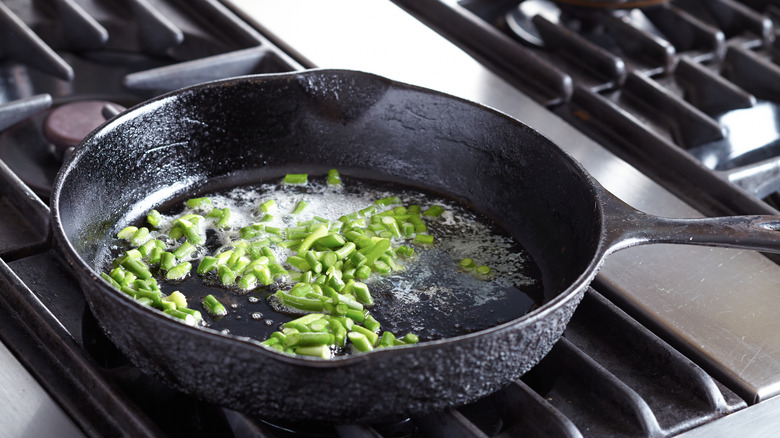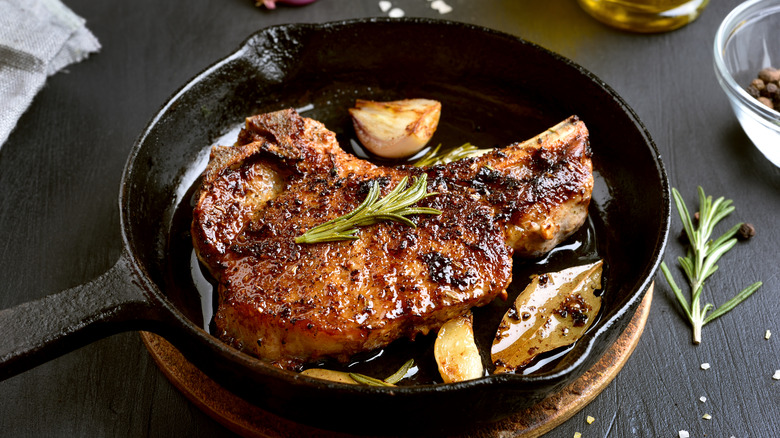You're Probably Making This Classic Cast Iron Mistake
We may receive a commission on purchases made from links.
Ask anyone who owns a cast-iron skillet, and they'll swear it's the best cookware they've ever purchased. For starters, a cast-iron skillet comes pre-seasoned, which means it's essentially a nonstick pan and you don't have to douse your cookware in oil or cooking spray, per Eating Well. Because the pan is naturally seasoned, it also adds an extra level of flavor that your food wouldn't typically absorb in a generic, nonstick stainless steel pan.
Additionally, cast-iron products are chemical-free, versatile (stove, oven, and grill friendly), and super easy to clean (via Earth's Friends). With all of these benefits, you're probably thinking that a cast-iron pan comes with a hefty price tag. It doesn't! These are actually cheaper than most nonstick frying pans. For example, on Amazon, a 10-inch Lodge pre-seasoned cast-iron skillet costs $26.68, while a 10-inch nonstick pan costs $39.99 on Amazon.
Operating a cast-iron skillet is far different than a nonstick pan. For example, you don't have to deep clean the pan like you normally would. In fact, you don't have to use soap or much water! Similar rules apply to how you heat your pan.
Heat is not your friend
The first thing you should know about cooking with cast iron is that it reacts to heat differently. Think about how you cook with a stainless steel pan. Usually, you crank the heat all the way up to warm up the pan and then turn it down low once you're ready to cook so as to not char the food. You want to do the opposite with your cast-iron skillet.
One Reddit user explained that preheating their cast iron on the lowest heat has taken the skillet "from good to amazing." They noted that taking the skillet from cold to extreme heat hurts the cookware. Instead, gradually heat the skillet. The same rules apply during the cleaning process. The user found that leaving their skillet on high heat for a long period of time was actually burning off the skillet's seasoning. As a solution, they now "wait for a few wisps of smoke," then remove it from heat to protect the coated layers of seasoning.
Bottom line, never leave your cast-iron skillet over high heat, especially when it's empty (unless it's only for a brief time, like above). If properly taken care of, cast iron can be passed on from generation to generation, according to The New York Times.

